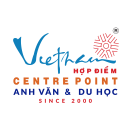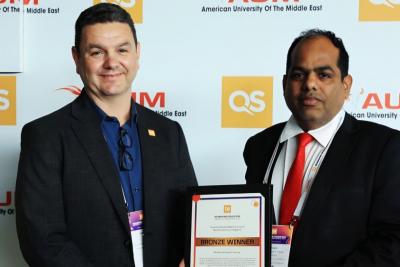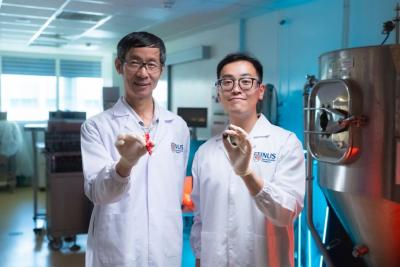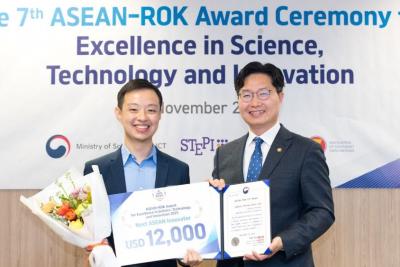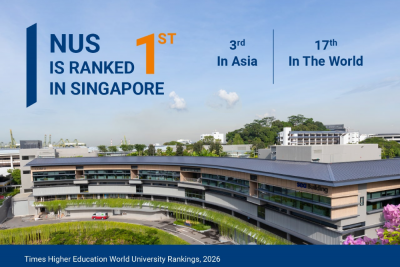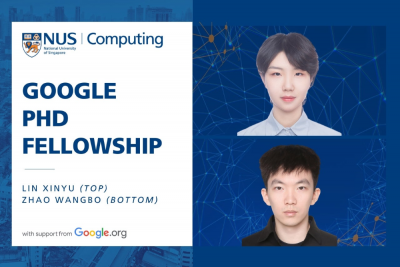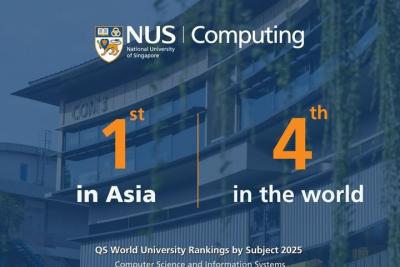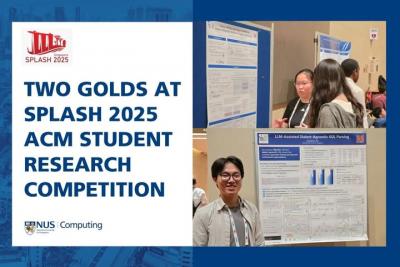Các nhà nghiên cứu NUS có thể giúp người khiếm thị "nhìn" được đồ vật nhờ AI
Shopping for groceries is a common activity for many of us, but for visually impaired people, identifying grocery items can be daunting. A team of researchers from the National University of Singapore’s School of Computing (NUS Computing) introduced AiSee, an affordable wearable assistive device that helps people with visual impairment ‘see’ objects around them with the help of artificial intelligence (AI).
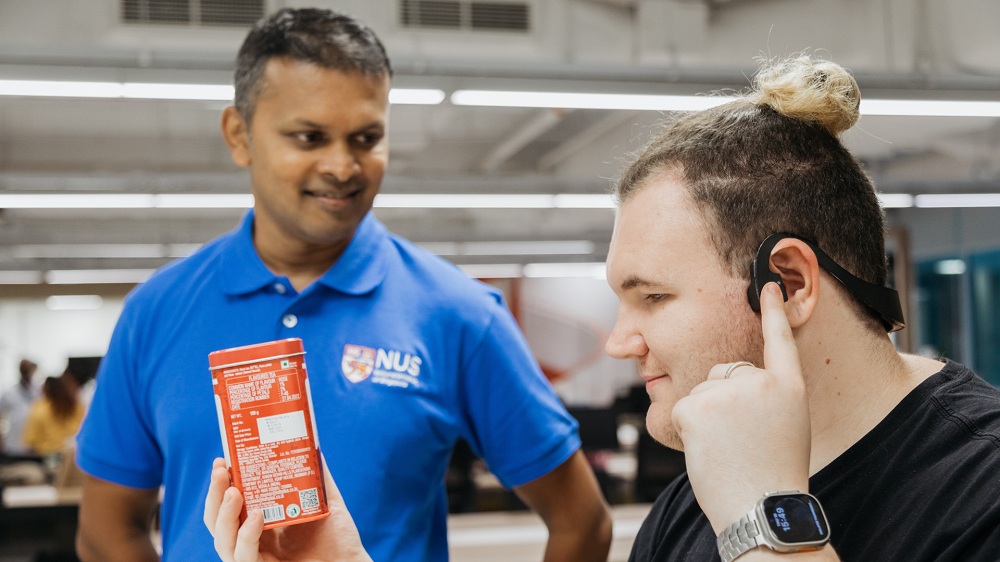
Assoc Prof Suranga Nanayakkara (left) with NUS student Mark Myres (right), who tested AiSee as a visually impaired user.
Individuals with visual impairment face daily hurdles, particularly with object identification which is crucial for both simple and complex decision-making. While breakthroughs in AI have dramatically improved visual recognition capabilities, real-world application of these advanced technologies remains challenging and error-prone.
AiSee, which was first developed in 2018 and progressively upgraded over a span of five years, aims to overcome these limitations by leveraging state-of-the-art AI technologies.
See more here

